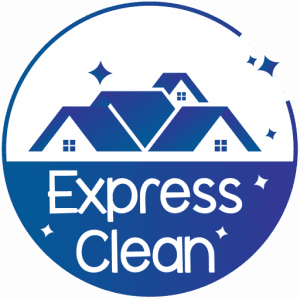How Often Should You Deep Clean? A Guide for Homes & Facilities
Maintaining a clean and healthy environment is essential for both homes and facilities. But how often should you schedule a thorough—or deep—cleaning? The optimal frequency depends on several factors: space usage, material types, level of traffic, and safety requirements. Below, we cover industry best practices, material compatibility, chemistry safety, and efficient scheduling for property managers and homeowners.
Understanding Thorough Cleaning vs. Routine Cleaning
Routine cleaning focuses on visible dust and debris, while thorough cleaning targets hidden germs, allergens, and buildup. Deep cleaning includes:
- Wiping and disinfecting high-touch surfaces (e.g., doorknobs, switches)
- Detail cleaning floors and carpets
- Sanitizing bathrooms and kitchens
- Removing grime from vents, baseboards, and behind appliances
As recommended by the CDC’s deep cleaning guidance, deeper cleans provide rising benefits, especially during flu season or after illness.
Table: Suggested Deep Cleaning Frequency by Space Type
| Area | Suggested Frequency | Special Notes |
|---|---|---|
| Home (Low Occupancy) | Every 3–4 months | More often with pets or allergies |
| Home (High Occupancy) | Monthly | Especially bathrooms, kitchens |
| Shared Offices | Every 2 weeks | High-touch disinfection weekly |
| Event Spaces | After each event | Include upholstery & restroom focus |
| Healthcare/Childcare | Weekly to daily | Stringent protocols required |
What Influences Deep Cleaning Frequency?
- Foot Traffic: Busy venues or high-turnover homes (like Airbnbs in Chicago) require more frequent thorough cleaning.
- Material Sensitivity: Some surfaces (e.g., natural stone, stainless steel) can be damaged by harsh chemicals. Use pH-neutral products when possible—see our stainless steel cleaning guide for details.
- Allergy & Illness Rates: If residents are prone to allergies or have been recently ill, consider scheduling extra deep cleans. Learn more at the CDC’s cleaning & disinfection guide.
Best Practices: Materials, Safety & Chemistry
Proper selection and use of cleaning agents is crucial. Here’s how to ensure safe, effective deep cleaning:
- Always check for material compatibility and use pH-appropriate cleaners
- Observe dwell time: Most disinfectants require 5–10 minutes to kill pathogens
- Use distinct cloths for restrooms, kitchens, and communal areas to avoid cross-contamination
- Wear PPE as required (gloves, masks, eye protection), especially in high-risk or commercial locations
- Dispose of waste following local Chicago regulations and best practices to avoid environmental risks
For greener options, explore our green cleaning products safety post.
Scheduling Efficiency: Making a Cleaning Calendar
Efficient scheduling ensures that deep cleaning does not disrupt day-to-day operations or home life. Here are strategies to simplify:
- Use a digital calendar and set recurring events for deep cleaning days
- Ensure supplies (e.g., disinfectants, microfiber cloths) are well-stocked before scheduled cleans. See our cleaning tools resource
- For multi-unit buildings or offices in Chicago and the suburbs, coordinate with service providers outside of peak usage hours
If you’re interested in the mental health benefits of regular cleaning, our guide to cleaning for reduced anxiety offers more.
Key List: Signs It’s Time for a Thorough Cleaning
- Visible build-up on floors, tiles, or vents
- Increased dust, pet dander, or musty odors
- Recent illness or flu outbreak among residents/staff
- Noticeable stains or spots on furniture and carpets
- Soon after major events, moves, or renovations
High-Touch Protocols: A Closer Look
High-touch areas require extra attention in every thorough clean—especially communal spaces in greater Chicago. Disinfect surfaces like light switches, elevator buttons, faucets, and computer keyboards every time you do a deep clean. For specifics on dust removal, refer to our dust cleaning solutions article.
Efficiency & Compliance for Facility Managers
Facility managers and homeowners must also comply with local, state, and federal cleaning guidelines. Stay updated on OSHA and CDC recommendations, monitor cleaning logs, and conduct periodic quality checks. If you’re managing a multi-unit dwelling or commercial facility in Chicago, consider partnering with professionals to ensure regulatory compliance and streamlined scheduling. To book office cleaning in Chicago or the suburbs—or for move-out cleans—visit our commercial cleaning service page or schedule move-out cleaning.
Frequency
The right cleaning frequency balances health, safety, efficiency, and material care. With best practices, knowledge of surface compatibility, and an organized schedule, you’ll enjoy cleaner homes and workplaces across Chicago and its suburbs.
About the Author: Reviewed by: Express Clean Team – With over 20 years of hands-on experience in both residential and commercial cleaning services throughout Chicago, Express Clean’s experts ensure every guide is rooted in real-world janitorial and specialty cleaning best practices.
House Cleaning Chicago, Apartment Cleaning Chicago, Cleaning Chicago, Services Chicago Cleaning, Office Cleaning Chicago, cleaning services in chicago illinois, House Service in Evanston, IL, Service Clening House Skokie, House Cleaning in Highland Park il, Cleaning House Services in Wicker Park IL








